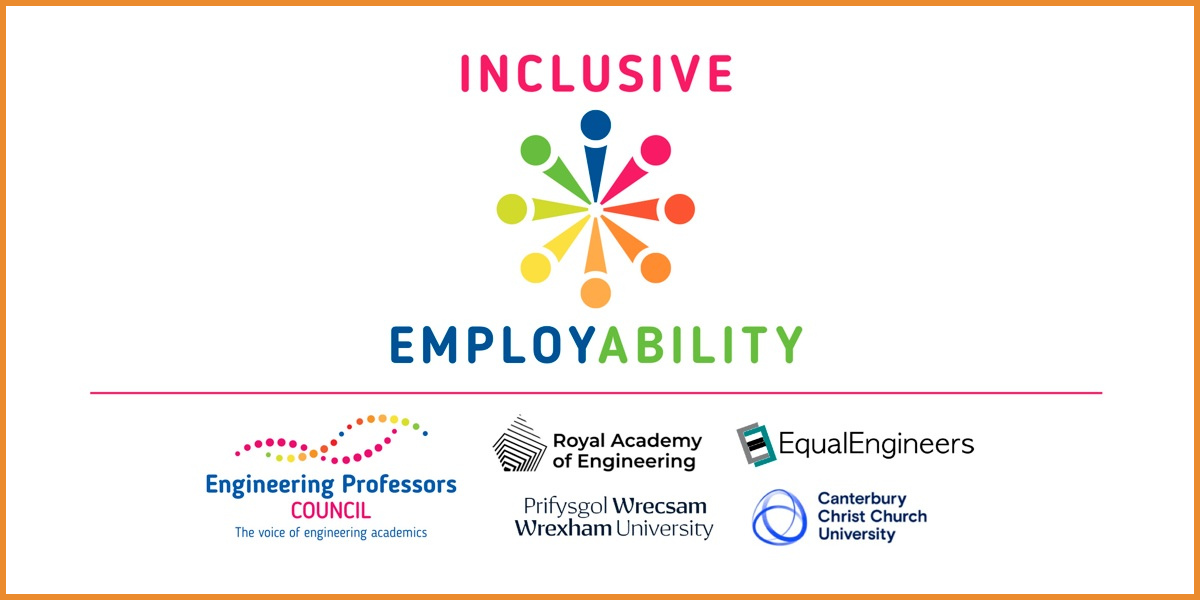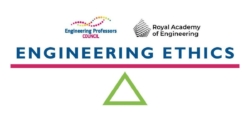
Objectives: Engage in EDI events, workshops, and networks to deepen your understanding of diversity, inclusion, and social responsibility. Gain real-world insights from industry videos and leverage volunteering, placements, and networking to enhance employability and refine career goals. Use diverse work experiences for self-discovery, embrace unexpected roles for growth, and reflect on past experiences to clarify future career decisions. These steps will guide your personal and professional development.
Introduction: Embracing lifelong learning, the journey of understanding and implementing Equality, Diversity, and Inclusion (EDI) is continuous. By consistently learning, reflecting, and applying these principles in all areas of life, you foster growth that benefits both yourself and those around you.
Topic: Enhancing career growth and social responsibility through active engagement in EDI events, networks, and diverse work experiences.
Keywords: Equity, Diversity and Inclusion; Social responsibility; Professional development; Employability and Skills; Collaboration; Leadership or management; Gender; Networking; Neurodiversity; LGBTQ+.
Social responsibility
Video summary:
Ammaarah Ravat, a compliance engineer at Cummins, emphasizes community involvement and the value of diverse experiences in shaping career paths.
Key insights:
🌟 Importance of social responsibility: Engaging in community service reflects a commitment beyond job duties, showcasing character and values.
🔍 Role of volunteering: Actively participating in local initiatives can enhance employability and illustrate one’s dedication to societal betterment.
🚀 Value of industrial placements: Gaining diverse experiences during placements enables students to refine their career goals and professional interests.
💼 Self-discovery: Working in varied roles helps individuals identify their strengths and preferences, guiding future career decisions.
🌐 Networking opportunities: Building a professional network during internships is crucial for career advancement and finding new opportunities.
🎯 Open-minded approach: Embracing unexpected job roles can lead to personal growth and a better understanding of the industry.
🤔 Reflection on experiences: Analysing past roles helps clarify what one wants and doesn’t want in their career path, aiding future choices.
Resources and support
To support your journey, we’ve curated resources from Wenite, Equal Engineers. We’ve also developed a University Career Services Library – a curated collection of links to career centers at various universities, providing direct access to valuable tools, guidance, and opportunities to support your career growth.
- University Career Services Library: Access our comprehensive library of links to university career services and explore a wide range of valuable resources.
- Wenite: Articles, interviews, and challenges showcasing diverse voices.
- Equal Engineers: Engineering-specific EDI resources, mentorship, and job listings.
Engage in EDI events, workshops , and networks
We invite you to participate in upcoming EDI-focused networks, events, and workshops:
- AFBE – Association for Black & Minority Ethnic Engineers
- Equal Engineers Neurodiversity Network
- Equal Engineers Reach Network – Race, Ethnicity and Cultural Heritage Network
- Equal Engineers Menopause Network
- InterEngineering: The Equal Engineers LGBTQ+ Network
- WISE– Women into Science and Engineering
- WES- Women in Engineering Society
Meet some of our industry collaborators
Video summary: Susan Hawkes, a technician at Berry Range Limited, promotes engineering diversity and emphasizes the importance of mental health within her family-run company. Key insights: 🌟 Technicians matter: Technicians like Susan play a vital role in engineering, yet often lack recognition. Elevating their status can enhance the industry. 🤝 Diversity drives progress: Promoting diversity in engineering creates innovative solutions and reflects the society we serve, making it imperative for future growth. 🏢 Company culture counts: A supportive work environment that values mental health contributes to employee satisfaction and retention, which is essential in a demanding industry. 👩⚕️ Mental health focus: Addressing mental health proactively fosters a healthier workforce and can lead to improved productivity and morale. 🌐 Women in engineering: Encouraging more women to join institutions like ICE can lead to a more balanced workforce and bring fresh perspectives to the field. 🗣️ Networking opportunities: Engaging in networking events can open doors for collaborations and mentorship, crucial for career development in engineering. 🌍 Leadership representation: Having diverse leaders in organizations, such as the female president of ICE, inspires future generations and promotes inclusivity in the field. Video summary: Stewart Eyres discusses the mission of Equal Engineers to create a diverse, equitable, and inclusive approach to engineering recruitment and support. Key insights: 🌈 Diversity in engineering: Equal Engineers addresses the need for a diverse workforce in engineering, recognizing varied perspectives enhance innovation and problem-solving. 🎓 Collaboration with universities: Partnering with educational institutions fosters a pipeline of diverse talent, ensuring that engineering education aligns with industry needs. 🤝 More Than recruitment: The agency goes beyond traditional recruitment by actively working with companies to make their environments more welcoming for diverse candidates. 📊 Support for new recruits: Regular follow-ups with new hires help to verify that companies meet their commitments, creating a supportive onboarding experience. 🌟 Empowering ambition: Stuart encourages aspiring engineers not to settle for their first job but to seek roles that truly fit their skills and aspirations. 🔍 Job market opportunities: With a shortage of engineers, there is an abundance of opportunities available, inviting candidates to be proactive in their job search. 💼 Thriving in the workplace: Creating an inclusive environment allows diverse employees to contribute their unique strengths, benefiting both the individual and the organisation. Video summary: Jordan Hannah discusses supporting apprenticeships in engineering, emphasizing the need for employer engagement and practical experience in the field. Key insights: 🌱 Employer responsibility: Companies should actively engage with apprentices, helping with career development rather than just completing their training period. This fosters a sense of loyalty and ensures a skilled workforce. 🏗️ Diverse engineering paths: Engineering encompasses a wide array of disciplines, from infrastructure to technology. Embracing this diversity can open numerous career opportunities and attract a broader range of talent. 📆 Structured development: A well-planned apprenticeship program provides a roadmap for apprentices, enhancing their job security and professional growth, which can lead to higher retention rates. 🧠 Importance of employability skills: Engineers must cultivate soft skills like communication to effectively collaborate with non-technical stakeholders, underscoring the interdisciplinary nature of modern engineering roles. 🚀 Encouragement to experiment: Encouraging students to explore various engineering roles can lead to a more informed career choice, highlighting the importance of practical experience in shaping interests. 🔄 Learning from dislike: Understanding what one does not enjoy can be just as valuable as knowing what one does like, guiding future career decisions and improving job satisfaction. 📈 Continuous support: Post-apprenticeship support is crucial for young professionals, ensuring they transition smoothly into their careers and feel valued by their employers.
Click on each accordion tab to hear from some of our industry collaborators. These videos offer valuable insights into real-world experiences and perspectives that can enhance your understanding of the field.
Ready to take the next step?
Your commitment to EDI creates a more inclusive, equitable, and diverse world. Continue engaging with these principles to embrace the challenges and opportunities in both personal and professional life. Let’s move forward together.
Your feedback matters
Email Crystal Nwagboso for any suggestions and feedback.
This work is licensed under a Creative Commons Attribution-ShareAlike 4.0 International License.
Any views, thoughts, and opinions expressed herein are solely that of the author(s) and do not necessarily reflect the views, opinions, policies, or position of the Engineering Professors’ Council or the Toolkit sponsors and supporters.
Please note: Discussions around discrimination, prejudice and bias are highly complex and part of a much wider national and international debate, including contested histories. As such, we have limited the scope of our resources to educating and supporting students.
The resources that the EPC and its partners are producing in this area will continue to expand and, if you feel there is an issue that is currently underrepresented in our content, we would be delighted to work with you to create more. Please get in touch.
 Author:
Author: